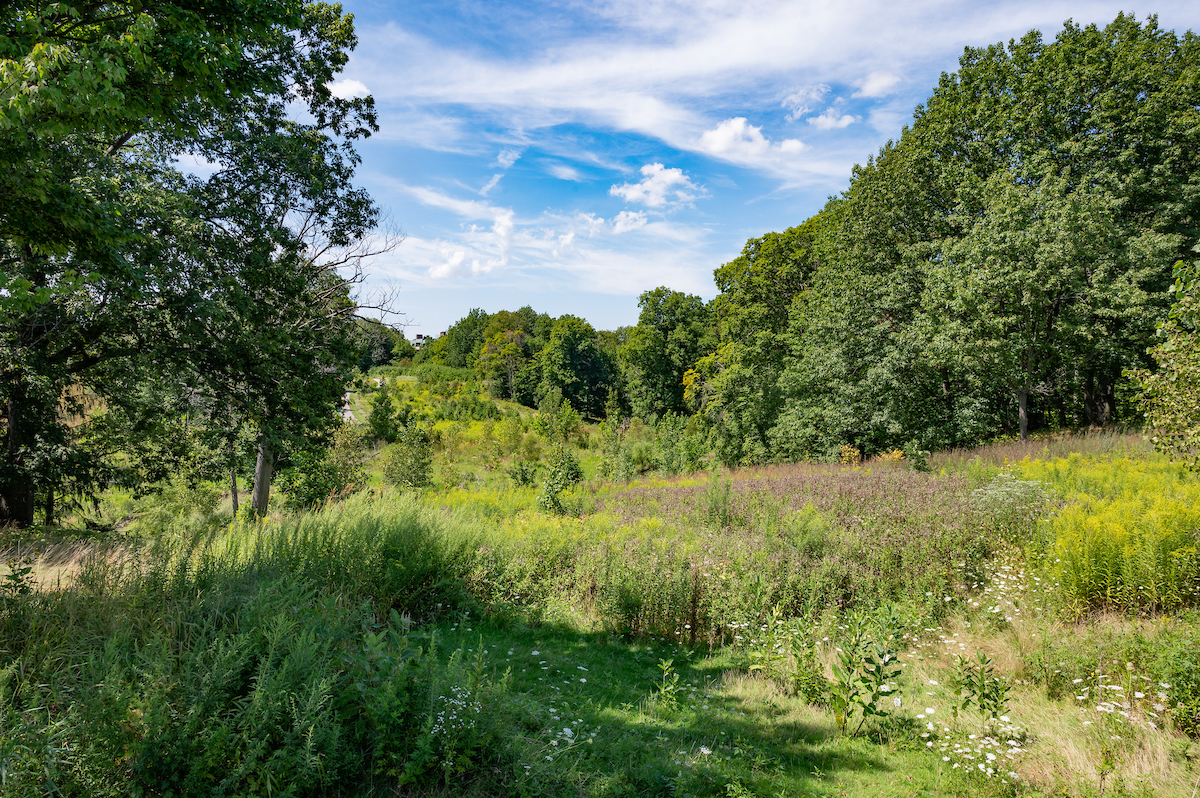Cleveland Metroparks is committed to the use of scientific information to guide conservation actions, and to that end, a Natural Resources Research and Monitoring Program was implemented.
The program’s goal is to stimulate, initiate, and collaborate on research, monitoring, and assessment projects that provide reliable and defensible scientific information for the conservation, preservation and management of natural resources, the impacts on those resources related to park visitation and the changed urban environment within Cleveland Metroparks and northeastern Ohio.
A permit is required for any research or collection activities conducted in Cleveland Metroparks whether they visibly disturb the site or not. This includes but is not limited to plants or plant parts, soil and minerals, animals, insects and water sample collections.
Permits are required prior to conducting research and monitoring projects within the boundaries of Cleveland Metroparks. Additional state and federal permits may be necessary depending on the scope of the project. For more information regarding permits and research options click here.
-
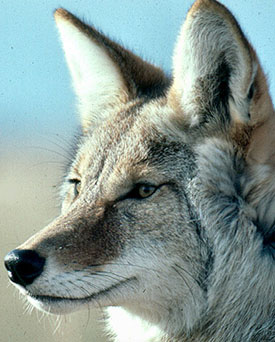
A Coyote Howling Survey
A graduate student and volunteers are listening for coyotes in North Chagrin, Bedford, and West Creek reservations to learn more about the numbers and locations of coyotes in the Park District.
-
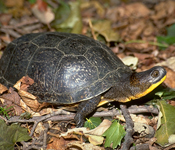
Blanding's Turtle Project
Blanding’s turtles are listed as endangered or threatened in several states, and the Ohio Division of Wildlife lists them as a “Species of Special Concern” indicating that further loss in numbers could lead to higher protective status.
-

Exotic European Wood Wasp (Sirex Noctilio)
In cooperation with USDA Animal and Plant Health Inspection Service APHIS is conducting a small trapping program for Sirex wood wasp in Cleveland as well as other cities in the state.
-
Forest Leaf Litter/Ant Diversity in Forests
Ants are important predators of other insects, and they play important roles in seed dispersal and breakdown of organic matter.
-
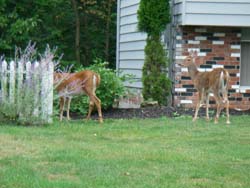
Impact of Deer on Forest Floor Dynamics
Deer browsing can affect homeowners as well as the natural resources in Cleveland Metroparks.
-
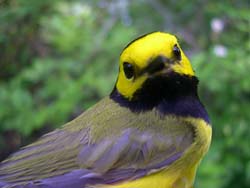
Rocky River Flow Gauge Upgrade Project
In cooperation with the Western Cuyahoga Audubon Society, the WCAS is continuing their survey of forest breeding birds to provide information about bird populations of the Rocky River watershed.
-
Status of an Amphibian Fungal Disease in Northeastern Ohio
Bd is the fungal organism that causes an emerging infectious disease implicated as one cause of amphibian declines worldwide.
-
The Impact of Deer Browsing and Flowering Plant Abundance on the Reproductive Success of Mayapple
The Impact of Deer Browsing and Flowering Plant Abundance on the Reproductive Success of Mayapple
-
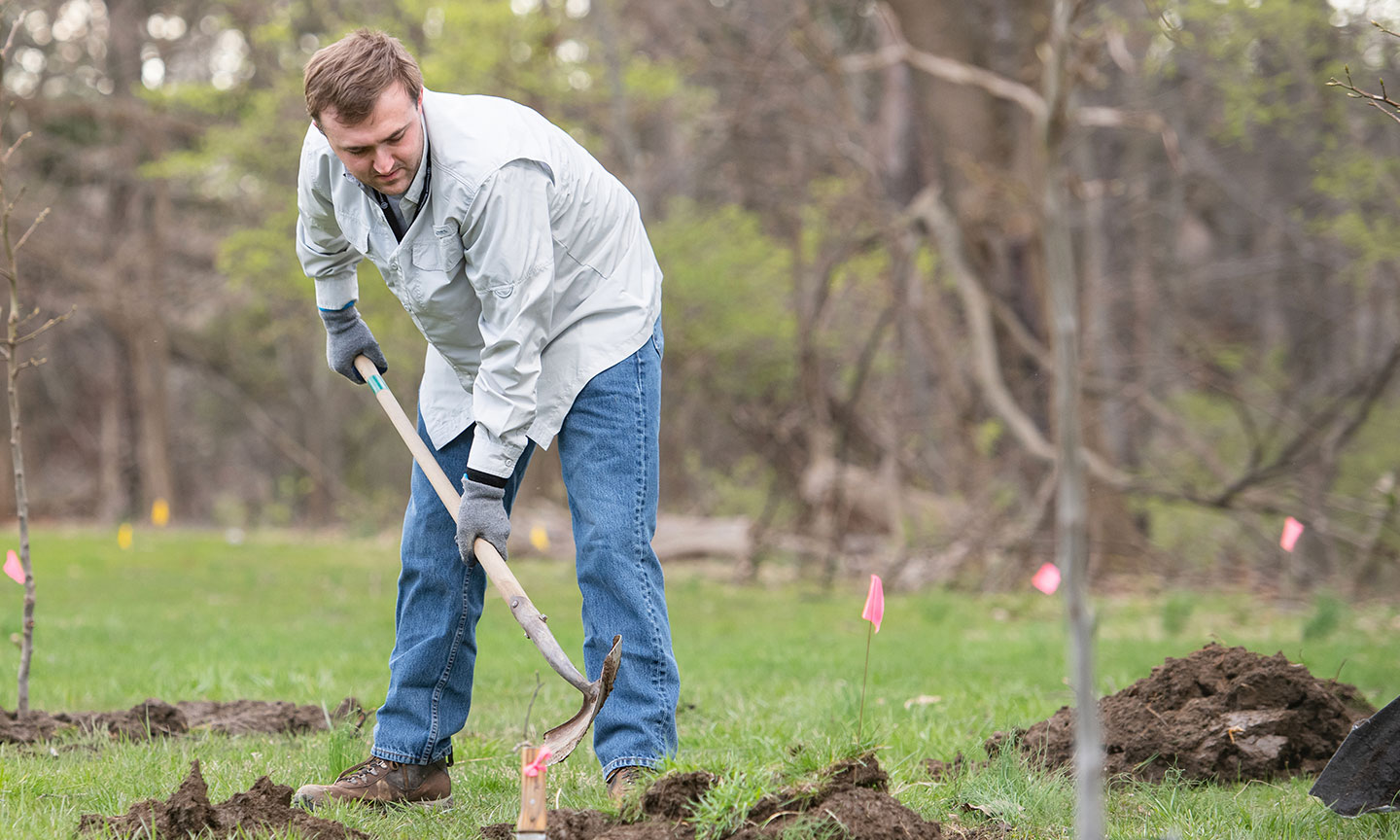
Tree Selector
Choose the right tree to plant for responsible landscaping, map your project and identify nurseries in your area.
-
Urban Wildlife Population Study
Cleveland Metroparks has partnered with researchers at Michigan State University to launch a long-term urban wildlife project throughout the Metroparks system.
-
Wetland Assessment
In 2005, staff began a wetland evaluation project to develop baseline data on wetland condition and quality using the Ohio Rapid Assessment Method.

